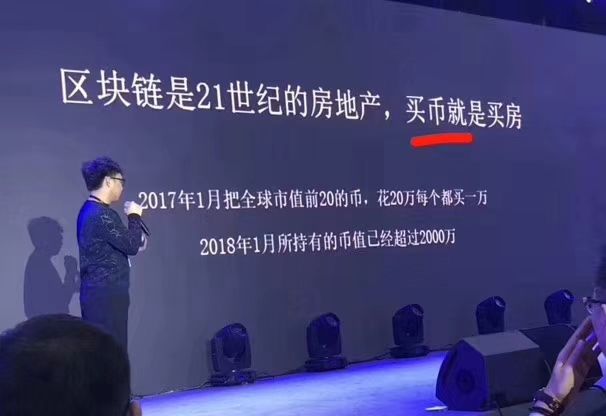加密谷协会(瑞士/楚格)联合创办人Soren Fog的文章
Well, Bitcoin is a virtual currency; it's what you could call virtual money.
Alright, you say, then tell me what the [insert bad word here] is a virtual currency.
Well, it is actually exactly what the word says, virtual. Meaning it isn't real money.
Well alright then, you would counter, laughing, why the [insert another bad word here] would I use unreal money when I have good old real money in my pocket, isn't that just stupid? Isn’t that just reinventing the wheel?
Good question! Let me illustrate with a bit of history.
Marco Polo, born 1254 in Venice, left his home as a teenager to travel a total of 24 years in the Far East, including China, and he was the first European to chronicle the ways of life he witnessed and learned through his often perilous adventures out there. He was also born from a wealthy merchant family, and had before his travels received a thorough merchant's education. Young Marco knew a thing or two about trade and money.
After returning, the now adult Marco could explain to the medieval European society how they used money made of paper in the quite advanced realm of Kublai Khan's, the then ruler of China. People in Europe ridiculed Marco for such a stupid claim, and thought of it as invented gossip to make himself interesting. Who on Earth would put trust in something as invaluable as paper when you could have good old silver and gold?
From Wikipedia on banknotes (http://en.wikipedia.org/wiki/Banknote): "Historically, banks sought to ensure that they could always pay customers in coins when they presented banknotes for payment. This practice of "backing" notes with something of substance is the basis for the history of central banks backing their currencies in gold or silver. Today, most national currencies have no backing in precious metals or commodities and have value only by fiat."
Fiat?
No, it’s not the Italian car brand. "Fiat money is currency which derives its value from government regulation or law. The term derives from the Latin fiat ("let it be done", "it shall be"). It differs from commodity money and representative money. Commodity money is based on a good, often a precious metal such as gold or silver, which has uses other than as a medium of exchange, while representative money is a claim on the commodity rather than the actual good."
Got it? The 500 Dollar note in your pocket has no real value. It has "virtual" value because people trust in their banks, their governments, to back the "noted, virtual" value for "real" value. So you are already using virtual money.
Alright, you say, so what if my money isn’t real as long as my national bank backs it. Who backs Bitcoin?
Yes, exactly, and this is where it gets really interesting. But in order to get to the short and simple answer, I need to discuss a few things first.
If you ask your bank how they are going to back the value of your deposit, the estimated value of your property if you sell it for (paper) cash, how they guarantee (or hedge) the value of your stock and bonds, etc., what can they say? They have to back their own assets somehow to do that, and that can be done with other monetary guarantees like bonds or mutual insurances, backing from other banks etc. So, yeah, what would they say?
Perhaps: We can exchange your Rubles for Swiss Francs if you like! So, I ask, can you trust the Swiss Franc? At the current moment it certainly seems so, but can I get a guarantee that it will be so in the future? Not quite.
Tell me, isn't it so in today's world that in fact one national (virtual) currency is backed by other nations' (virtual) currencies? Hasn't the backing also gone "virtual" to some not insignificant extent?
You say: Shut up, I know there's a lot of gold buried in Fort Knox!
Hehe, yes, and then I get tempted to ask, what the [insert bad word here] makes gold so valuable? What backs gold?
Conception!
People’s understanding of value, what they can get for it, and what insurance they have that the value they can expect from it in the future is the same. I mean, the only thing of ultimately real value would be commodities such as food, houses, land, oil, salt, livestock, things that keeps us alive, keeps us fed, keeps us dry and warm at night. Not gold. And yes I know gold has some value being needed for certain types of production, but let's stay with the idea that it is only a representative currency.
Conception is everything here - what you believe the noted value is worth now and in the future. Virtual money, be that paper notes or Bitcoin, only has value because people believe in something backing its value in a stable manner so they can trust that the value they acquire (on cheap paper or digital certificates) is stable enough to convert it back into some commodities of expected equal value later when the time and need arises.
The reason that it took time for the established society, back in the 13th century, to understand that (virtual) paper money was indeed a very cool solution has not changed even today. The reason for laughing at Bitcoin is the same reason why people mocked Marco Polo when he returned from Kublai Khan. The difference from then to today is who to trust for the backing. Ask yourself, did gold have any real value in Marco's Venice back in the 13th century? Did paper have in China? Or was it, in fact, already representative, already virtual?
The fact that they got along with the idea of paper money in Venice anyway was that it made trading so much easier. All it needed was backing, trust, fiat, and you could then buy and sell carrying only a small wallet. No need for horse driven loads. Using virtual money is efficient! A lot easier to deal with than receiving 3 pigs, 1 horse, 22 chicken and a crate of apples for your old car down from the dealer. None of us could live without virtual currencies today!
Ok, you might say, you convinced me that there's no real difference between Bitcoin and "normal" currencies, apart from the backing. But I need clarification on that thing with backing Bitcoin too, before I would even consider it!
Yes, yes. Of course. And that brings me to what I actually wanted to say. Let me summarize a bit and add a few points:
We are all already using virtual currencies. We have them in our wallets as ordinary paper, and as coins made of cheap metal.Most of us have already virtualized our virtual money by accepting and trusting various types of credit cards, stocks, bonds etc., often stored digitally in banks.All the (already virtual) currencies in the world are to a large extent backed, not so much by commodities but by each other.The backing of all these currencies is again backed on political stability and law and regulations within and between nations.The currencies fluctuate due to political change or instability, lucky oil finds and creative trading patterns etc. They are volatile.Competition between nations, regions, continents, and wars, natural disasters, embargos, all adds to the volatility, the risk.The risk of your (virtual) savings having a different value than you anticipate is at the mercy of all these competing factors.The risk factors relating to sometimes covert political agendas or even out-in-the-open threats that creates unforeseen costs, clashes between factions/religions sometimes leading to wars, unpredictable natural disasters (or even predicable ones), illegal drug and arms trade, money laundering or tax evasion from seemingly honorable mega corporations or international associations, and etc.
And all done with fiat money!
So what I'm saying is that you can't really rely 100% on the backing of value from nations, from banks. They are at the mercy of the same factors that in the end drills down to the risks each individual accepts in trusting the fiat currencies.
What makes us all take that risk, and it's generally a minimal risk, is the fact that it usually works all fine. Usually. Right now the Russians might disagree since political turmoil has triggered a huge reduction in the conceived value of their currency.
Well, some might say, that could be to the advantage of Russia. Their exports rise since their products get less expensive, and in time it might make them much stronger. But some Russians might rather see their savings turn more valuable quicker, so they can enjoy what they otherwise expected they could get for the savings and the perceived value before the currency took a hit.
What I'm saying is that all in all the backing of virtual money on the planet is simply chaotic, and in a very mathematical sense. Even chaos stabilizes itself. So apparently it all still works fine over time. The Ruble will come back up, just a question of when.
Alright, enough gibberish; tell me what is backing bitcoin!
Contrary to (normal, virtual) fiat currencies the Bitcoin is not backed by nations or banks, but by its users!
The conceived value is the consensus value perceived by everyone owning Bitcoin. And that is utterly independent of political turmoil or natural disasters, barring a huge asteroid wiping out the Earth or if the Internet is down. Ultimately 7 billion people's common consensus of conceived value could minimize currency fluctuation from impact factors such as political squabbles between various factions. Isn't that actually better backing? Higher fidelity?
Perhaps so. But why is it then that the Bitcoin value, its exchange rate, is on such a roller coaster? Is the conceived value of Bitcoin really changing all that much and all the time?
Yes. For now. Because the currency is small. Because there are (still) not enough money in there, not enough users, to really stabilize it in a very (chaos theoretical) mathematical sense. If one person buys an expensive house with Bitcoin, you actually see a small change in the exchange rate directly affected by that single trade. But this is changing, and changing fast. It's growing.
So let me ask you again: What or who would you trust to best back the value of your money? Some banks? Some governments? Or the entire mass of people in every corner of the planet using the specific currency in question, and the value they all conceive through common consensus, especially if (or once) there are enough users of that currency?
Perhaps you are a little bit tempted already to say the latter, but at the same time be a little dubious why you should trust the common consensus of value from people you don't know, even people you politically disagree with, or even fight wars against.
I tell you here that you can. I confidently claim so. The reason why is due to a nothing less than brilliant technological idea called The Blockchain, a way to mathematically freeze information into a world-wide publically available general ledger, so nobody, not even your worst adversaries, can tamper with that information.
And this is why Bitcoin, or rather its underlying technology, the Blockchain, is so [insert bad word here] interesting! Imagine that nobody else than everybody decides the value of money. Wouldn't that ultimately create a better, more fair sharing of wealth on the planet? Some might not quite like to share more fairly, but that doesn't change the potential of one single currency that is backed by the conceived value from every user on the planet.
Oh, and this doesn’t mean that everything will cost the same everywhere, not at all, only that the token representing value reliably has the same value for everyone. The price of a beer in Switzerland will probably still be 20 times that of a beer in Venezuela, it’s just that the currency used to pay for the beer is the same in both places (no exchange needed), and the conceived value of the currency is generated by the same people in both countries, or rather people from all over.
One might spend a quiet evening with a glass of wine contemplating what effect a single currency with a conceived value based on world-wide consensus might do to political instability, power struggles, hostility, and poverty, if the exchange rate is the same for everyone, if there's no longer any point in fighting over the value of money!
So, finally, to the short answer as to who backs Bitcoin: Potentially everyone!
Think about it!
In my opinion, the fact that Bitcoin is backed by nobody and everybody is the best of many reasons to use Bitcoin. It will however take quite some time to stabilize. Many other good, bad or even illegal reasons exists where the benefit is much more immediate, and those you will hear frequently from other people trying to promote the idea of Bitcoin or cryptocurrencies in general. Some of these reasons are:
There’s no need for, and rarely are any middlemen or institutions involved in doing transactions on the Bitcoin network. Value is transferred straight from donator to receiver.There’s no need for a receipt for transactions done. The Blockchain records all transactions, and the "receipt" is inscribed into the Blockchain and can never be altered by anyone, friend or foe.You can remain completely anonymous. You decide, not your bank or national legal system, whether you want to publically announce your transactions or if you prefer to hide behind nonsense account numbers that can be even very hard to track.There are virtually no fees involved in making transactions between two parties, or in any case, the fees are optional and would be used to tempt miners to include the transaction into the Blockchain faster than normal. And the fees used for speeding up things are absolutely minimal.Transactions are in principle instant. They take some miniscule amount of time to propagate through the Bitcoin peer to peer network, and will reach around the globe in mere seconds.You will never need a backup. All information, all transactions that have ever been issued will always be publically available in the Blockchain. As long as you remember your wallet addresses and secret keys, all of your accounting is automatically stored on the Internet and you just need software to retrieve it.
There are many more advantages from using Bitcoin, some quite technically involved – and not so easily explained. One example is automated escrows and smart contracts, which "live" on the Blockchain, can do what you otherwise would have to pay a not insubstantial fee to an agent for, and can be set up and executed in a split second. And absolutely safely.
I will discuss the more technical aspects of The Blockchain in a follow up article, including why trading with Bitcoin is so much easier than using paper and coin, or even electronic transactions through the established banking systems.Oh, and, if the Internet is down, the banks suffer just as much as Bitcoin.



